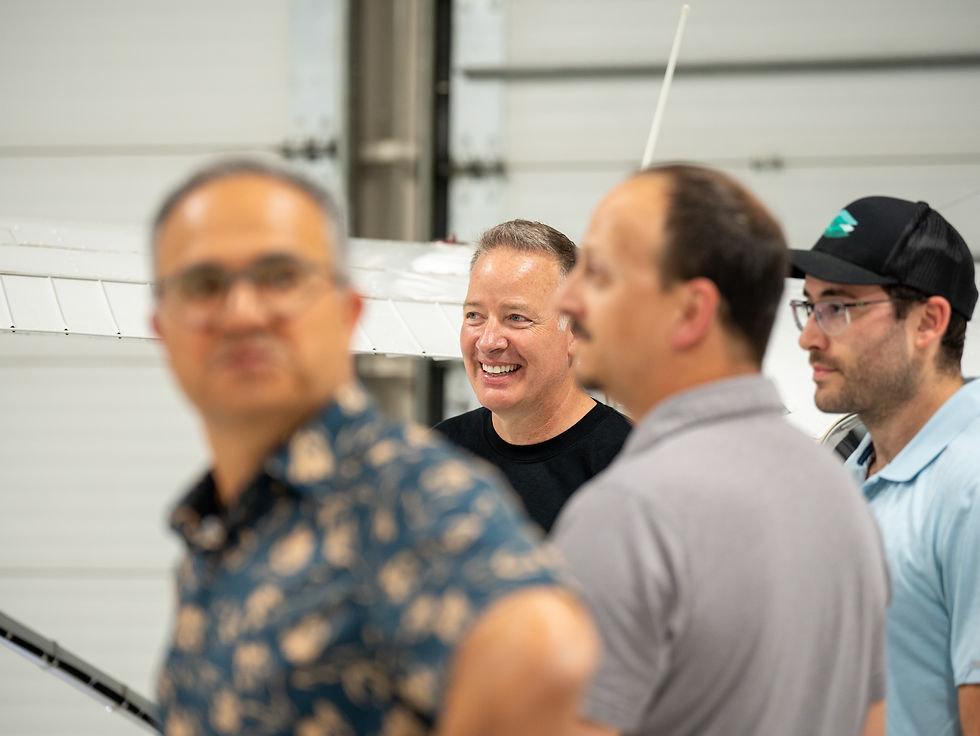Kelowna MP Stephen Fuhr Visits TerraSense’s Airborne Sensing Laboratory
- Natalia Kaplan
- Aug 19, 2025
- 2 min read
On August 14, 2025, TerraSense Analytics had the honour of hosting Kelowna’s MP and Secretary of State (Defence Procurement), Stephen Fuhr PC MP CD, at the Airborne Sensing Laboratory (ASL) in the KF Aerospace hangar.
The ASL is a joint initiative between TerraSense Analytics, the University of British Columbia’s STAR initiative, and KF Aerospace. Together, the partners are creating an affordable, high-quality airborne data collection platform to advance Canada’s research and defence capabilities.
Demonstrating the Future of AI-Powered Defence
During the visit, MP Fuhr was given an inside look at how the ASL is shaping the future of AI-powered defence technology in Canada.
The platform’s Cessna has been retrofitted with an L3Harris Wescam MX-10 and IMSAR NSP-5, enabling the collection of concurrent optical and radar data. This modern sensor suite gives Canadian researchers and defence professionals access to data that was previously difficult — or costly — to acquire.

“Our platform offers a similar sensor suite to the Royal Canadian Navy’s recently announced Uncrewed Aircraft System supplied by MDA Space, but at a lower operating cost — and with operators trained specifically to collect data for ISR AI solutions.”
Michael Lombardo, Machine Learning Engineer, TerraSense Analytics
Building Capability Through Flight Testing
Since receiving STC approval for the MX-10 in April, the ASL has completed nine successful flights. These missions have trained operators in optical sensor use and refined manoeuvres for optimal data collection.
During his tour, MP Fuhr observed HD electro-optical and infrared imagery gathered by the MX-10, as well as TerraSense’s process for annotating and labelling this data to train AI models within the company’s MIST solution.

“Operators that are trained from an ISR AI background, such as what we offer at TerraSense, can increase the quality of data procured on a data collection mission. Greatly reducing time-consuming efforts to filter through and clean data for training AI models.”
Michael Lombardo, Machine Learning Engineer, TerraSense Analytics
Looking Ahead
With the NSP-5 radar’s certification process underway, the ASL team is preparing for full commercial availability in Fall 2025. This milestone will make advanced airborne sensing capabilities more accessible to the Canadian research community and further strengthen the country’s AI defence ecosystem.



Comments